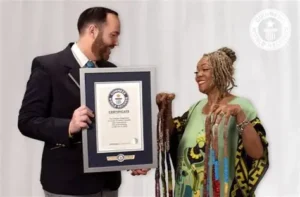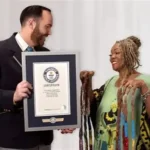By
Wilkister Akinyi
Sanitary Towels Budget Slashed from Ksh 470m to Ksh260m
Leaving Women and Girls Strive to Obtain the Towels.
Different
local organizations address the legislation enacted by the members of
parliament.Formative research shows that
girls face monthly challenges, with 65% of women and girls in Kenya unable to
afford sanitary pads.
L-R: Janet Mbugwa , Ruth
Kinuthia , Margaret Sumba and Yasmin Mohammad during a press conference at
Kibra.[Wilkister Akinyi]
A group of non-governmental organizations have
raised an alarm over the high prices of sanitary towels for women and girls in
informal settlements.
They argue that those living in the informal areas are
struggling to acquire sanitary towels terming a human right which needs to be
addressed by the government.
The lobby group advocating for government intervention
are Superb CBO Organization in partnership with Inua Dada, Making A Difference
(MAD) Sister, Kibera Community, and Women Rights Defender Hurb.
Yasmin Mohammed, Chief Executive Officer (CEO) of
Superb CBO Foundation revealed that 65 % of women and girls cannot access
sanitary towels due to the limited supply of sanitary within the informal
settlement and across the nation at large.
She condemned the decision made by the members’
parliament for reducing the menstruation hygiene budget and urged them to
review and increase the budget allocation.
“Surprisingly members of parliament slashed the current
budget for sanitary towels from Ksh 470M to Ksh 260M,” Yasmin lauded.
Additionally, Janet Mbugua, the founder of Inua Dada
Foundation noted that girls are using unsafe means of accessing sanitary towels
which leads to an increase in HIV/AIDS, teenage pregnancies, early marriages,
school dropout, and unsafe street abortion resulting in high maternal deaths.
She also noted that menstruation health right is an issue
that should be sensitized to the public to curb the challenges the menstruators
face.
“Menstrual health has become a very important component
in a woman’s life. Women and girls need to be taught on how to manage
themselves when they experience menstruation,” Mbugua affirmed.
She also urged the local and international organizations,
the National and County government and the community needs to facilitate
menstrual health management.
“This is by ensuring they get adequate and relevant
knowledge and information on menstrual health management, access to quality
sanitary towels and other basic necessity like undergarments and access to
clean water.” She said.
Ruth Kinuthia, founder of the Women Rights Defender Hurb,
the National Government Affirmative (NGAF) action fund is mandated to
distribute free sanitary towels nationwide to adolescent girls who are enrolled
at public schools and are not equally distributed as stipulated by the policy.
“The sanitary towels do not reach out at grassroots
level. And as a result girls and women are forced to access them through unsafe
ways. They engage in transactional sexual activities, intergenerational
partners and hard labor in order to access sanitary towels,” Kinuthia stated.
She declared that they need to end all the unsafe means
of accessing sanitary towels, especially in the informal settlements where the
environment is not conducive for the health aspect.
“The environment is not friendly as there’s shortage of
water, lack of access to clean water and sanitation which causes diseases and,
in this regards, girls and women end up getting infections which is very
dangerous to their health,” said Kinuthia.
Speaking during this year’s world menstruation Hygiene
day 2022, Yasmin lauded that their theme is “to create a world where no woman
or girl is held back because they menstruate, by 2030”. She added that the
government should chip in to achieve the Sustainable Development Goals.
About the Author
Rading Biko
Contributor
A highly experienced multi-platform Editor, digitally aware, skilled with words, and endowed with the ability to work effective under deadline pressure. Coming with a record of accomplishment of delivery high level of clarity, accuracy, and balance in copy editing functions. Since 2010 I have been working across the full spectrum of Kenyan Media as a Multimedia Journalist on both Electronic(Radio and Television),Print and online media.
















